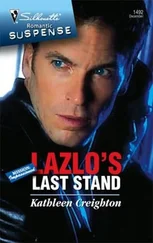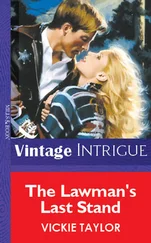The Major knew, even as he witnessed the event, that he would be hard pressed later to relay the details of the fight that now erupted. He saw a short man with large feet shove Abdul Wahid, who fell against one of the waiters. He saw another waiter slap a male dancer across the face with his white arm towel, as if to challenge him to a duel. He heard Daisy Green call out, somewhat hoarsely, “People, please remain civilized,” as a riot erupted in the middle of the dance floor. Things became a blur as women screamed, men shouted, and bodies hurled themselves at one another only to crash to the ground. There was much ineffectual thumping of backs and indiscriminate kicking.
As the music segued into an even more raucous tune, the Major was astonished to see a large drunken guest whip off his turban, hand his hookah pipe to his girlfriend, and throw himself across the heaving mass of assailants as if it were all a game. The Vicar waded in to grab him by the trousers but was kicked backward and fell on Alma. He became tangled in her green sari in a way that made Mortimer Teale look quite jealous, and was rescued by Alec Shaw; he dragged them behind the bar, which Lord Dagenham and Ferguson seemed to have commandeered as if for a siege.
“Oh, please, there is no need for violence,” cried Daisy as two combatants spun out from the crowd and landed on a table which collapsed in a heap of gravy-soaked plates. Several of the fighters, already looking winded, seemed to find it more effective to kick someone else’s opponent while clutching their own with their arms to prevent being punched.
Most of the guests had been pressed into the corners of the room and the Major wondered why those nearest the door did not just run out into the night. He guessed that they had not yet been served dessert and were reluctant to leave before parting gifts had made an appearance in the vestibule.
The fight might have organized itself into something actually dangerous had not someone found the appropriate switch backstage and killed the music. In the sudden quiet, heads popped up from the heaving mass of bodies and punches hesitated in midair. Old Mr. Percy, who had been staggering around the perimeter of the mêlée, whacking indiscriminately with a stuffed chicken, now gave one final blow. The chicken burst in a wave of polystyrene beads. Combatants soaked in gravy and now covered in white polystyrene seemed to realize that perhaps they looked foolish and the fight began to lose steam.
“I am terribly sorry,” said Mrs. Rasool to Daisy as she and her husband held up the elder Mr. Rasool. “My father-in-law was only six years old when his mother and sister were killed. He didn’t mean to cause a fuss.” The old man swayed and looked as faint and translucent as parchment paper.
“He’s ruined everything!” shrieked Daisy.
“He’s obviously quite ill,” said Mrs. Ali. “He needs to get out of here.” The Major cast around for an easy exit, but combatants were still being pulled apart and the crowd, no longer held in the corners, had swelled into all the spaces not covered with gravy.
“Mrs. Rasool, why don’t we squeeze through and bring him to the porch?” said Grace, taking charge. “It’s quieter out there.”
“Is there something wrong with the kitchen?” shrieked Daisy as he was led away.
“It’s probably dementia, wouldn’t you say?” Mrs. Khan asked her husband loudly.
“Oh no, Daisy is always that way,” said the Major without thinking.
“I guess we call it a night and get a cleaning crew in here,” said Lord Dagenham, surveying the damage. Five or six overturned tables complete with broken dishes, a palm tree cut in half, and curtains down in the entranceway seemed to be the only major damage. There were spots of blood on the dance floor from some bruised noses, and several sets of dirty footprints.
“I’ll get the parting gifts and send people home,” said Gertrude.
“Nonsense! No one’s leaving until we have dessert and then make our presentation to Major Pettigrew,” said Daisy. “Where is that caterer? Where is the band?”
“I am here and ready to get my team back to work,” said Mrs. Rasool, appearing at Daisy’s side. “We will finish the job in the same professional manner we began.” She turned to the waiters. “Do you hear me, boys? Get straightened up and start resetting those tables. No more nonsense now, please. Ladies-please let your young men go backstage and have a good drink and we’ll start the dessert procession.”
The band gathered and began a particularly objectionable polka; to the Major’s surprise, the waiters began to move. There were some muttered words among them, but they obeyed Mrs. Rasool, some picking up tables and the rest disappearing out into the kitchen. The lunch girls, more truculent and louder in their comments, were disinclined to leave their injured friends, but half of them complied while the others led away their aggrieved warriors to be comforted in the backstage room. The guests began to filter toward the bars, and a few club members helped to pick up tables. A groundskeeper two-stepped his way across the dance floor with a huge wet mop and disappeared through a French door into the night.
“Mrs. Rasool, you should have been a general,” said the Major, deeply impressed as the room began to assume normality and a parade of lunch ladies entered bearing tiered stands of petits fours.
“Major Pettigrew, my apologies for the disturbance,” said Mrs. Rasool, drawing him aside. “My father-in-law has been very frail lately and the sight of all the dead bodies came as a shock to him.”
“Why do you apologize?” said Abdul Wahid, startling the Major, who had not seen him approach. “Your father-in-law spoke nothing but the truth. They should be apologizing to him for making a mockery of our land’s deepest tragedy.”
“You have no right to call it a mockery,” said Amina, her voice wobbling from exhaustion and anger. “I worked like crazy to make a real story out of this piece.”
“Abdul Wahid, I think you should take Amina home now,” said Mrs. Ali. Abdul Wahid looked as if he had plenty more to say, and Amina hesitated. “Both of you will leave now. We will not discuss this further,” added Mrs. Ali, and some steel in her tone, which the Major had never heard before, caused them to do as she said.
“Look here, normally I’d say the show must go on,” said Lord Dagenham. “But maybe we just drop it and avoid any further controversy? Give the Major his tray on the quiet.”
“That would be fine with me,” said the Major.
“Nonsense!” said Daisy. “You can’t let some old man’s aspersions drive you from the stage, Major.”
“If you do, people may think there is some kind of truth to his view,” said Ferguson.
“Well, I don’t see how anyone could be insulted,” said Roger. “My grandfather was a hero.”
“I’m sure you can understand that many people still grieve for those who were murdered during this time,” said Mrs. Ali in a conciliatory tone. “Thousands died, including most on your grandfather’s train, it seems.”
“Well, you can’t expect one man to have defended a whole train, can you?” said Roger.
“Certainly not,” said Dagenham, clapping the Major on the back. “Personally I think he would have been quite justified in jumping out a window and saving his own skin.”
“Pity he didn’t have more warning,” said Ferguson. “He could have organized the passengers to tear up the seats and use them to barricade the windows. Maybe made some crude weapons or something.”
“You must be American,” said Mrs. Ali. She looked angry now. “I think you’ll find that works a lot better in the movies than in a real war.”
“Look, the truth belongs to the guy who’s best at sticking to his story,” said Ferguson. “We see a picture of all of us in the paper with that silver tray, Double D, then this dance was a big success and this little contretemps never happened.”
Читать дальше












